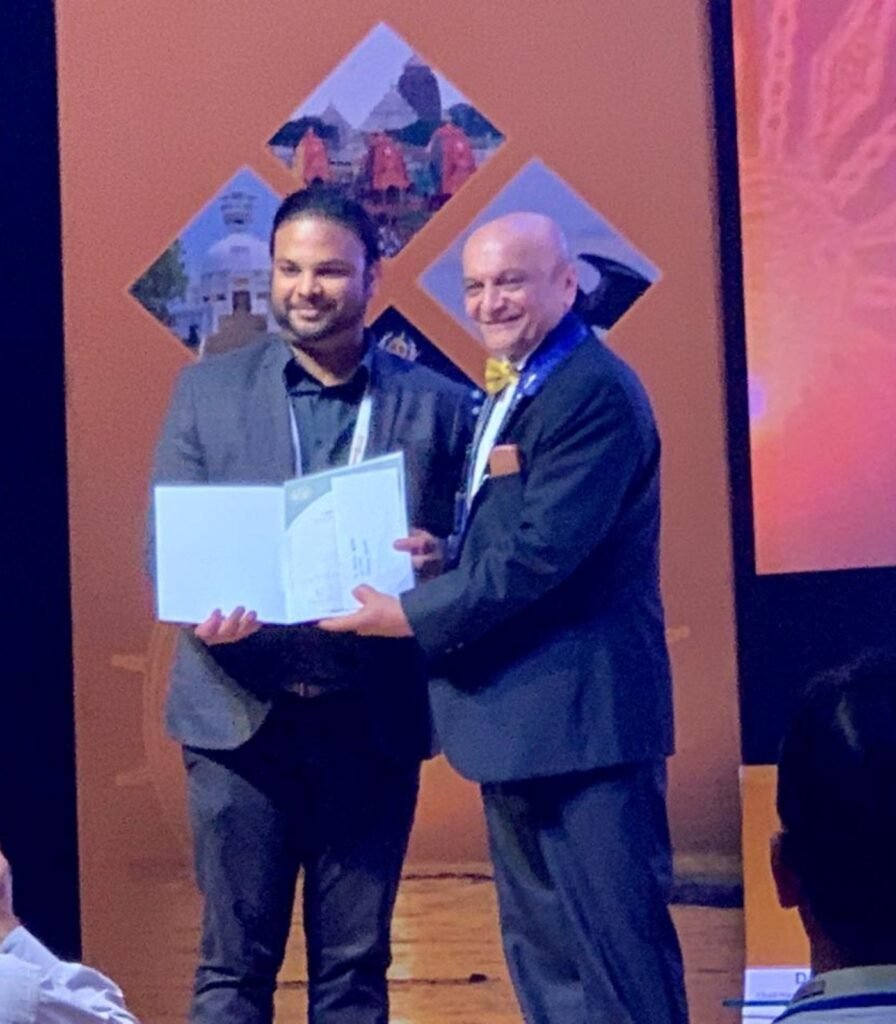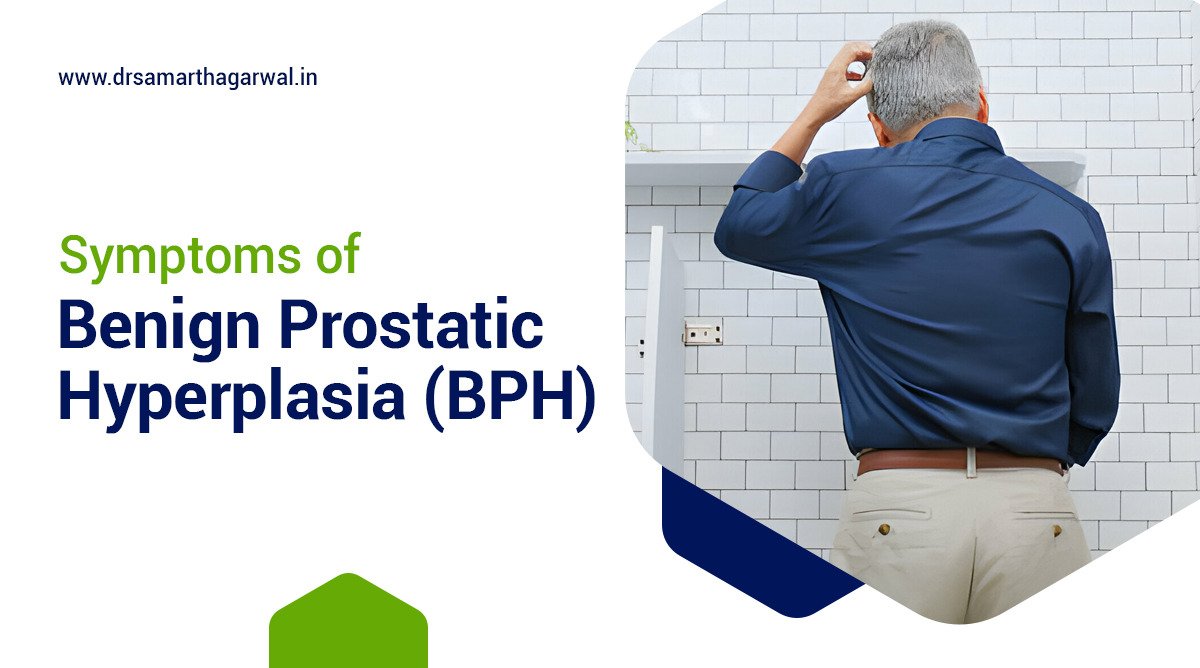What Is Benign Prostatic Hyperplasia (BPH) and How Does It Affect Men?
Benign prostatic hyperplasia (BPH) is a noncancerous enlargement of the prostate in men. It occurs as the prostate undergoes two growth phases, often causing symptoms like urinary difficulties and impacting bladder function. The second growth phase, starting around age 25, leads to an enlarged prostate, pressing on the urethra and thickening the bladder wall.
Benign prostatic hyperplasia (BPH), commonly affecting men over 50, results from unclear causes, possibly related to hormonal changes with age. Dihydrotestosterone (DHT) accumulation is implicated in continued prostate cell growth. By age 60, around 50% of men exhibit BPH symptoms, increasing to 90% after 80.
While mild cases may require monitoring, treatment options include lifestyle changes, medications, minimally invasive procedures, or surgery, tailored to symptom severity. Regular checkups and understanding risk factors contribute to proactive BPH management.
You might be interested in this: Common Symptoms of Urinary Problems
Exploring the Symptoms of BPH
Symptoms of benign prostate enlargement (BPH) include:
- Difficulty starting to pee
- Frequent need to pee
- Difficulty fully emptying your bladder
- Weak flow of urine
- Stop-start peeing
- Needing to pee urgently and/or frequently
- Needing to get up frequently in the night to pee
- Accidentally leaking urine (urinary incontinence)
Managing BPH Symptoms for Quality of Life
Difficulty starting to pee
If you’re experiencing difficulty starting to pee due to Benign Prostatic Hyperplasia (BPH), there are practical steps to manage symptoms.
Managing difficulty starting to pee with BPH involves various effective approaches. Engaging in regular physical activity is crucial to prevent urine retention. Stress management techniques, such as meditation, help reduce nervousness and frequent urination. The practice of double voiding ensures more complete bladder emptying. Alpha blockers, though providing rapid relief, may cause side effects like dizziness and difficulty ejaculating. Recognizing symptoms like sudden urges to pee is essential for timely intervention. Understanding the impact on urinary flow and addressing weak streams are integral steps in managing BPH symptoms.
Frequent Urination (BPH Symptom) Management
Frequent urination, especially at night, is a common BPH symptom. Here are some tips for managing it:
- Limit fluids, especially in the evening: While staying hydrated is crucial, reducing fluid intake, particularly close to bedtime, can help decrease nighttime urination.
- Double voiding: Try urinating, waiting a few moments, and then attempting to urinate again. This can help ensure your bladder is fully emptied.
- Schedule bathroom visits: Go to the bathroom regularly, even if you don’t feel an urgent need. This helps train your bladder and potentially reduce nighttime frequency.
- Avoid bladder irritants: Limit caffeine and alcohol, as they can irritate the bladder and increase urine production.
Remember, these are general tips, and consulting a healthcare professional is essential for personalized advice and treatment options.
Difficulty fully emptying your bladder
Managing difficulty fully emptying the bladder in BPH involves effective techniques. Try double voiding, urinating once and then again a few moments later, to ensure complete bladder emptying.
Managing symptoms like incomplete emptying is crucial. Here are some tips:
- Double voiding: After urinating, wait a few moments and try again. This helps ensure your bladder is fully emptied.
- Lean forward while urinating: This relaxes the pelvic muscles and may improve bladder emptying.
- Pelvic floor muscle exercises (Kegels): Strengthening these muscles can improve bladder control and emptying.
Remember, these are general recommendations, and consulting a healthcare professional is essential for personalized advice and treatment options. They can assess the severity and determine the best course of action, including medication or surgical intervention if needed.
Weak flow of urine
To manage the weak flow of urine associated with BPH, consider making lifestyle adjustments. Avoid consuming caffeine and alcohol, especially at night, as they can irritate the bladder and increase urine production.
Here are a few tips for managing it:
- Double voiding: After urinating, wait a few moments and try again to ensure your bladder empties fully.
- Relax while urinating: Avoid straining, which can worsen weak flow.
- Maintain a healthy weight: Excess weight puts pressure on the bladder and prostate, potentially impacting flow.
- Consider medication: Medications like alpha-blockers can relax muscles in the prostate and bladder neck, improving flow.
Stop-start peeing
To alleviate stop-start peeing associated with BPH, adopt healthy lifestyle changes. Reduce nighttime fluid intake by avoiding drinking for an hour or two before bedtime.
Stop-start urination, also called intermittent urination, can be frustrating with BPH. Here are some tips:
- Double voiding: After urinating, wait a few moments and try again. This helps ensure your bladder empties fully, potentially reducing the need to start and stop.
- Relax while urinating: Avoid straining, which can worsen intermittent flow.
- Pelvic floor muscle exercises (Kegels): Strengthening these muscles can improve bladder control and potentially reduce the start-stop sensation.
Needing to pee urgently and/or frequently
Frequent and urgent urination, especially at night, are common BPH symptoms. Here are some tips:
- Limit fluids, especially in the evening: While staying hydrated is important, reduce fluid intake, particularly close to bedtime, to lessen nighttime urgency.
- Double voiding: Urinate, wait a few moments, and then try again. This helps ensure your bladder empties fully, potentially reducing urgency.
- Schedule bathroom visits: Go to the bathroom regularly, even if you don’t feel an urgent need. This helps train your bladder and potentially reduce overall frequency.
- Avoid bladder irritants: Limit caffeine and alcohol, as they can irritate the bladder and increase urine production, worsening urgency.
Needing to get up frequently in the night to pee
For those dealing with the frequent urge to pee at night due to BPH, certain lifestyle changes can provide relief. Avoiding caffeine and alcohol, especially in the evening, helps reduce bladder irritation and nighttime urination.
Frequent urination at night, also called nocturia, can disrupt sleep due to BPH. Here are some tips:
- Limit fluids, especially in the evening: Reduce fluid intake, particularly close to bedtime, to lessen the amount of urine produced during the night.
- Double voiding: Before bed, urinate, wait a few moments, and try again to ensure your bladder empties fully.
- Avoid bladder irritants: Limit caffeine and alcohol in the evening, as they can irritate the bladder and increase urine production.
- Elevate your legs: Elevate your legs while lying down in the evening to improve fluid distribution and potentially reduce nighttime urgency.
Accidentally leaking urine (urinary incontinence)
Urinary incontinence, a common but distressing BPH symptom, requires medical attention.
Combating urinary incontinence caused by BPH involves lifestyle adjustments. Regular exercise proves beneficial, as it helps reduce urinary problems associated with an enlarged prostate.
Here are some strategies can offer temporary relief:
- Double voiding: After urinating, wait and try again to ensure your bladder empties fully.
- Pelvic floor exercises (Kegels): Strengthening these muscles can improve bladder control and potentially reduce leakage.
- Lifestyle changes: Limit fluids, especially caffeine and alcohol, which can irritate the bladder.
Lifestyle changes and home remedies to support BPH treatment
Lifestyle changes and home remedies can significantly aid in the treatment of benign prostatic hyperplasia (BPH). Strategies include limiting fluid intake before bedtime, practicing timed bathroom schedules, and ensuring complete bladder emptying during urination.
To manage BPH effectively, incorporating lifestyle changes and home remedies is crucial. Avoiding fluids before bed, controlling liquid intake in public or during trips, and following a timed bathroom schedule help alleviate symptoms. Additionally, exercises strengthening pelvic floor muscles and collaborating with physicians for bladder training can be beneficial.
Herbal remedies like saw palmetto, green tea, pygeum, and stinging nettle are highlighted, emphasizing their potential to naturally address prostate enlargement. The importance of maintaining a healthy diet, rich in fruits and vegetables, and participating in regular physical activity is underlined. While pharmaceutical and surgical options exist, lifestyle adjustments play a crucial role in symptom relief and overall well-being for individuals with BPH.
You might be interested in this: Bladder OAB Symptoms: What You Need to Know
FAQ
What makes benign prostatic hyperplasia worse?
Over-the-counter cold and sinus medicines with decongestants or antihistamines can worsen BPH symptoms. Exposure to cold weather and lack of physical activity may also exacerbate these symptoms, emphasizing the importance of avoiding certain medications and maintaining warmth while engaging in regular exercise.
How does a benign prostate feel?
A benign prostate may feel normal during a medical examination, but if it becomes enlarged, symptoms can manifest. Common feelings associated with an enlarged prostate, also known as benign prostatic hyperplasia (BPH), include difficulty starting to urinate, a frequent or urgent need to urinate, and peeing more often at night. This condition can exert pressure on the bladder and urethra, causing changes in urination patterns and discomfort.
What is the first treatment for BPH?
The first-line treatment for benign prostatic hyperplasia (BPH) often involves alpha-blockers. Medications like terazosin and doxazosin, initially designed for hypertension, have proven effective for mild to moderate BPH symptoms. Alpha-blockers swiftly alleviate symptoms by relaxing prostate muscles, enhancing urine flow. This approach, recommended by healthcare professionals, aims to manage BPH effectively.
Can an enlarged prostate go back to normal size?
In some cases, an enlarged prostate can revert to a more normal size. Over a six-month period, the prostate may shrink by as much as 50%, leading to improved symptoms. Approximately 75% of cases exhibit lasting effects for 3-4 years, especially for individuals with mild benign prostatic hyperplasia (BPH). Though not guaranteed, treatments and lifestyle adjustments can contribute to the reduction in prostate size, alleviating associated symptoms
How common is benign prostatic hyperplasia?
Benign prostatic hyperplasia (BPH) is a prevalent condition, especially with age. By age 60, approximately 50% of men show signs of BPH, and by age 85, this percentage increases to around 90%. BPH rarely causes symptoms before age 40 but becomes increasingly common afterward. Histologically evident in up to 90% of men by age 85, it affects around 14 million men in the United States. This noncancerous enlargement of the prostate gland is the most common benign tumor found in men.

If you have any BPH symptoms then take appointments with Dr. Samarth Agarwal to help you out!




